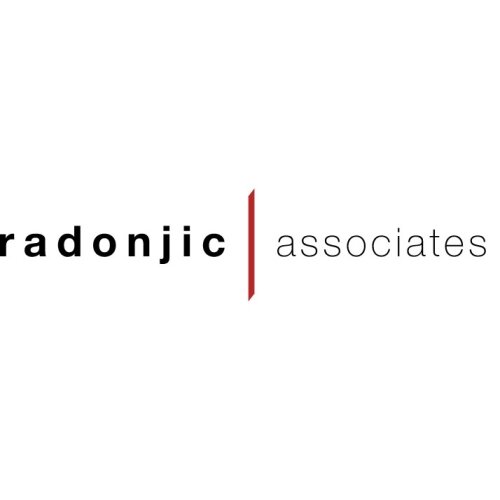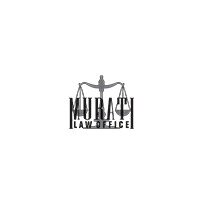Best Constitutional Law Lawyers in Montenegro
Share your needs with us, get contacted by law firms.
Free. Takes 2 min.
Or refine your search by selecting a city:
List of the best lawyers in Montenegro
About Constitutional Law in Montenegro
Constitutional law in Montenegro serves as the supreme legal framework that governs the functioning of the state's institutions and the protection of citizens' rights. It is derived from the Constitution of Montenegro, which outlines the structure of the government, the separation of powers, and fundamental human rights and freedoms. As a part of the legal system, constitutional law ensures the consistency and legality of other laws and practices within the country. Furthermore, it establishes the mechanisms for constitutional review and defines the role of the Constitutional Court in safeguarding the constitutionality of laws and regulations.
Why You May Need a Lawyer
There are several situations where individuals and entities may require legal assistance in the field of constitutional law in Montenegro:
- Challenging the constitutionality of a law or government action.
- Protecting civil rights and liberties that are guaranteed under the Constitution.
- Resolving disputes related to the separation of powers between different branches of government.
- Advising on constitutional amendments or legal reforms.
- Handling issues of citizenship, asylum, or refugee status concerning constitutional rights.
- Addressing electoral law matters, including rights to vote and running for office.
- Assisting with cases presented before the Constitutional Court of Montenegro.
Local Laws Overview
Montenegro's legal framework includes several key aspects pertinent to constitutional law:
- The Constitution: The central legal document that outlines the political and legal structure of Montenegro.
- Constitutional Court of Montenegro: An independent body responsible for interpreting the Constitution and ensuring laws conform to constitutional mandates.
- Human Rights and Freedoms: The Constitution guarantees an extensive range of fundamental rights and freedoms, including equality, freedom of expression, and privacy rights.
- Separation of Powers: Defines the distribution and limitation of powers among the executive, legislative, and judicial branches.
- Electoral Laws: Regulations concerning the democratic process, voting rights, and the organization of elections.
Frequently Asked Questions
What is the role of the Constitutional Court of Montenegro?
The Constitutional Court is responsible for determining the constitutionality of laws, resolving conflicts between state bodies, and protecting the constitutional rights of citizens.
How can I challenge a law that violates my constitutional rights?
Individuals may file a petition with the Constitutional Court, alleging that a law or state action violates their constitutional rights.
What are some examples of constitutional rights protected in Montenegro?
Rights include freedom of speech, assembly, and religion; rights to privacy and due process; and protection against discrimination.
How is the separation of powers enforced?
The constitutional framework ensures that executive, legislative, and judicial powers are distinct and independent to prevent abuses of power.
Can the Constitution be amended?
Yes, the Constitution can be amended according to a rigorous procedure that requires broad political consensus and potentially a referendum.
Who can interpret the Constitution?
The Constitutional Court of Montenegro is the authoritative body for interpreting the Constitution.
How are human rights violations addressed?
Human rights violations can be brought before national courts or the Constitutional Court, and, in some cases, international bodies.
What happens if a law is found unconstitutional?
If a law is deemed unconstitutional, it is nullified and cannot be applied by courts or other authorities.
Are there legal resources available for learning about constitutional law?
Yes, legal texts, university courses, and publications by legal experts provide in-depth resources for studying constitutional law.
Is there legal aid available for constitutional law cases?
Legal aid may be available through various legal NGOs or government initiatives to assist those unable to afford private legal counsel.
Additional Resources
Consider exploring the following resources for more information on constitutional law in Montenegro:
- Constitutional Court of Montenegro
- Ministry of Justice of Montenegro
- Legal Information Centre of Montenegro
- University of Montenegro - Faculty of Law
- Local Bar Associations
Next Steps
If you need legal assistance in constitutional law in Montenegro, consider these steps:
- Identify the specific constitutional issue or question you need assistance with.
- Consult legal directories or bar associations to find specialized constitutional lawyers.
- Prepare relevant documents and information to present your case clearly to a lawyer.
- Schedule a consultation with a constitutional law expert to discuss your case or legal question.
- Consider multiple legal opinions or advice before taking further legal action.
Lawzana helps you find the best lawyers and law firms in Montenegro through a curated and pre-screened list of qualified legal professionals. Our platform offers rankings and detailed profiles of attorneys and law firms, allowing you to compare based on practice areas, including Constitutional Law, experience, and client feedback.
Each profile includes a description of the firm's areas of practice, client reviews, team members and partners, year of establishment, spoken languages, office locations, contact information, social media presence, and any published articles or resources. Most firms on our platform speak English and are experienced in both local and international legal matters.
Get a quote from top-rated law firms in Montenegro — quickly, securely, and without unnecessary hassle.
Disclaimer:
The information provided on this page is for general informational purposes only and does not constitute legal advice. While we strive to ensure the accuracy and relevance of the content, legal information may change over time, and interpretations of the law can vary. You should always consult with a qualified legal professional for advice specific to your situation.
We disclaim all liability for actions taken or not taken based on the content of this page. If you believe any information is incorrect or outdated, please contact us, and we will review and update it where appropriate.
Browse constitutional law law firms by city in Montenegro
Refine your search by selecting a city.










